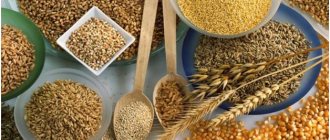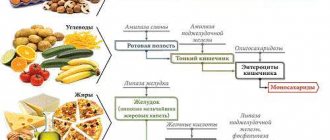Question:
Good afternoon, recently I began to notice that after melon my stomach hurts. Does this mean that gastritis is developing? And how to relieve the pain that appears?
Answer:
Hello, pain in the stomach after eating melon is a common occurrence, and, unfortunately, this is one of the signs of developing gastritis, unless we are talking about poisoning with the berry or drinking milk with it (melon and milk are incompatible and can cause indigestion ).
Melon itself is not an “aggressive” component for the stomach, but it is difficult to digest. Compared to other food ingredients, it can remain in the stomach for up to two hours. In the normal state of the mucous membrane, this process proceeds favorably and much faster, but as soon as a slight deviation from the normal state of the stomach appears, the digestion of the berry becomes difficult. The part remaining in the stomach undergoes fermentation, which is accompanied by the release of gases. This causes abdominal pain and a feeling of cramping.
Try to see a gastroenterologist as soon as possible and undergo the necessary examinations. Gastritis, diagnosed in the early stages, is quickly treated and does not leave behind any unpleasant consequences. And if you do encounter poisoning, it will additionally be manifested by the following symptoms.
- Nausea, vomiting.
- Diarrhea.
- Temperature increase.
- Headache.
- Weakness.
Poisoning can also be treated only as prescribed by a doctor, but you can take adsorbents that accelerate the elimination of toxins at home on your own.
Is it possible to eat melon with gastritis?
Nutritionists agreed that melon can be consumed in small quantities for gastritis, but only during the period of remission. In this case, it is necessary to pay attention to the presence of concomitant diseases, the condition and functionality of the digestive system, and contraindications.
Also, the possibility of use is determined by the clinical form of gastritis, the location of the lesion, the type of inflammation, the characteristics of gastric secretion and the nature of morphological changes.
Points for and against"
The usefulness of melon for the body is associated with the presence in its composition of microelements and vitamins necessary for life and maintenance of digestive processes. Thus, ascorbic and nicotinic acid act as correctors of secretory function: they stimulate the production of gastric juice. Vitamin E compensates for the deficiency of natural protective factors; vitamin B1 is part of important enzymes of energy and carbohydrate metabolism that provide the body with energy.
Vitamin B5 has a beneficial effect on the condition of the digestive system. It regulates hemoglobin synthesis, promotes the absorption of amino acids in the intestines, and reduces cholesterol levels. Retinol (vitamin A) increases the protection of mucous membranes and accelerates the healing process. In addition, it is a powerful antioxidant.
For reference. Melon satisfies the body's needs for zinc, selenium, and copper, the deficiency of which can contribute to the progression of inflammation and the development of other serious diseases of the gastrointestinal tract.
Diet for acute gastritis excludes fresh fruits and berries, including melon. The reason is that these products contain acids that irritate the gastric glands and mucous membranes, increase the secretion of juice, which increases pain and aggravates the course of the disease.
Why does melon poisoning occur?
The aroma and taste of melon (and any similar product - pineapples, bananas, peaches, etc.) is due to the presence of a large number of esters in them.
A low concentration of such substances creates that very fruity aroma characteristic of ripe fruits. Important! You should not think that if a melon smells like acetone, then it contains acetone. The presence of such an odor is due to the presence in the fruits of ethyl acetate and isoamyl acetate, which have a molecule, part of which is similar to acetone.
Ethyl acetate and isoamyl acetate appear in high concentrations in melons and other fruits as they ripen. Overripening leads to autolysis of fetal tissue - a process of self-digestion caused by a slowdown in metabolic processes due to excessive ripeness.
The result of autolysis is the release of a large amount of the same ethyl acetate. However, this substance in itself is not dangerous, since its concentration, even in large fruits, is too low to pose a danger to humans.
The problem is that the acetone smell is an indicator that bacteria are developing inside the fruit, which did not pose a serious threat until it was overripe. When the process of autolysis of the fruit began, the removal of both the bacteria themselves from the tissues and cavities of the fruit, as well as their waste products, stopped, and they began to multiply inside the melon uncontrollably.
Diarrhea after melon is common. This can happen not only from overeating, but also because this fruit is often treated with pesticides and nitrates.
Accumulating in this product and simultaneously turning into nitrites, they cause certain symptoms of melon poisoning. Once in the bloodstream, it interacts with hemoglobin. The resulting methemoglobin cannot provide sufficient oxygen to the tissues.
Hypoxia develops, which causes disturbances in the functioning of the cardiovascular system, central nervous system and other organs.
Another reason why diarrhea appears after melon and poisoning of the body is the inappropriate condition of the room where the melon is stored and improper transportation. When a crack occurs in the peel, bacteria and microbes spread throughout the fruit. Due to the high sugar content of melons, they multiply quickly.
A gastrointestinal tract disorder accompanied by diarrhea after eating melon in an adult may indicate two things: poisoning or overeating.
If a person does not consume a lot of good quality fruit at one time, but still has loose stools, this indicates the presence of an individual intolerance to this product.
There are a number of reasons when eating melon in any quantity is prohibited.
Melon culture, which contains a large amount of sugar and fiber, has a laxative and intestinal irritant effect. And regular overeating can cause diarrhea.
Therefore, it is necessary to monitor how much fruit is consumed, especially by children.
The peculiarity of poisoning is that the first signs of melon poisoning, which appear after a short period of time, will be similar to intestinal upset.
The person will also feel that the intestines are swollen, pain in the stomach and intestines appears, and nausea sets in. A distinctive sign of poisoning is elevated body temperature and vomiting.
This suggests that not only the intestines are cleansed due to the laxative effect of melon, but also the body’s fight against infection.
As mentioned above, poisoning is possible due to the high content of nitrates or the presence of bacteria in a spoiled and damaged product. There are certain symptoms of poisoning that can have a negative effect on the body.
Nitrate poisoning of a melon that was purchased out of season will manifest itself within 6–7 hours. Characterized by the following symptoms:
- loose, dark brown stools;
- frequent attacks of nausea;
- profuse vomiting;
- heartburn;
- pain in the stomach area, radiating to the right hypochondrium;
- feeling of bitterness in the mouth;
- bluish tint of lips;
- weakness throughout the body;
- yellowness of the skin and mucous membranes due to liver poisoning.
If the poisoning is severe, then there is a risk of convulsions, foggy consciousness, turning into a coma.
If you consume a low-quality product, symptoms will appear within a few hours and will look like this:
- watery diarrhea;
- loss of appetite;
- increased body temperature;
- abdominal pain;
- nausea;
- frequent vomiting.
Melon poisoning can cause dehydration. This is extremely dangerous for children, the elderly and women carrying a child.
There are a number of actions that need to be taken:
- Perform gastric lavage. To do this, take a liter of boiled water, brought to room temperature. To make the washing effect better, you need to dissolve several granules of potassium permanganate or a teaspoon of table salt in water. It is important to remember that you can rinse the stomach when the person is conscious and does not have a convulsive syndrome.
- Take a sorbent agent (polysorb, smecta, sorbex, activated carbon).
- To cleanse the intestines, do an enema with a weak saline solution.
- Compliance with a dietary diet that completely excludes melon, fatty foods, sweets, carbonated drinks, and alcohol.
- Drinking plenty of liquid during the day (pure water, herbal or black tea, rice broth, compote).
- Stay in bed until symptoms disappear completely.
If a pregnant woman or a child under three years of age is injured, self-medication is prohibited. For this category of people, there are individual medications and therapeutic actions.
Based on the above, it follows that melon poisoning: symptoms and treatment are similar to any food poisoning. If signs of poisoning have not disappeared after 24 hours, diarrhea and vomiting have intensified, the person’s consciousness has become clouded, breathing has become heavy, you need to consult a doctor.
In the toxicology department, the patient will receive assistance, which includes the administration of a drug aimed at eliminating oxygen starvation of tissues. If intoxication occurs due to exposure to bacteria, the doctor will prescribe antibiotics.
If the victim is provided with timely pre-medical or medical assistance, any negative health consequences can be avoided. Final recovery will occur after a few days.
In this case, there is a risk of serious disorders associated with the functioning of the cardiovascular system and liver.
The central nervous system, gastrointestinal tract and respiratory organs are also negatively affected.
Prevention
- Buy melon in late August early September. At this time, the fruits ripen without any processing or growth stimulants. Fruits purchased before August contain dangerous amounts of toxic substances, which are used to speed up ripening.
- Store the cut product in the refrigerator for no longer than 24 hours.
- Buy ripe, firm fruit that is free of various damages, dents, and has a pleasant smell.
- Eat half of the slice. The half that is closer to the peel may contain accumulated amounts of nitrates.
- Do not offer the product to babies under 12 months of age. At such an early age, children do not have special enzymes that can process melon.
- Make purchases only at those retail outlets where the seller is able to provide the necessary documentation indicating that the melon crop does not contain nitrates and pesticides.
- Do not buy fruits sold in a place where they are exposed to sunlight for a long time;
- Before use, wash the product thoroughly under running water.
- Stick to the allowed amount of food you eat to avoid overeating (1-2 slices).
Symptoms and treatment for melon poisoning Link to main publication
Melon during exacerbation of gastritis
During the period of exacerbation of gastritis, melon is strictly contraindicated. The pulp of the fruit takes a long time to digest, requires additional energy and enzymes, and therefore the amount of acids that provoke fermentation increases.
In chronic form
Outside of exacerbations, provided that the normal process of defecation is maintained, it is allowed to eat raw melon without peel in limited quantities.
For erosive gastritis
Erosive gastritis is characterized by the formation of single or multiple erosive defects on the gastric mucosa. In this condition, it is necessary to spare the gastrointestinal tract and exclude coarse vegetables, fruits, and berries, especially fresh ones.
Foods that are difficult to digest and linger in the stomach for a long time are not recommended. Melon is not included in the list of prohibited foods for erosive gastritis, but it is advisable to minimize its consumption.
With high/low acidity
Inflammation of the gastric mucosa, accompanied by increased acidity, is characterized by chronic constipation. Melon has a laxative effect, has a stimulating effect on the mucous wall of the colon, softens stool, reduces the time of bowel movement, and stimulates the act of defecation. Therefore, melon fruits are allowed to be consumed in moderation for gastritis with high acidity during the period of remission.
But for gastritis with a low level of acidity, melon is contraindicated, since it can provoke fermentation in the stomach, which adversely affects the course of the disease and the condition of the digestive system.
Prevention
You can avoid melon poisoning by following the following precautions:
- buy fruits only in season;
- When storing melons,
do not take spoiled and unripe fruits, cut or damaged; - choose melons with a pleasant aroma and uniform skin coloring;
- Store the cut fruit in the refrigerator for no more than a day.
To prevent your child from being poisoned by melon, do not allow him to eat large amounts, and gradually accustom small children to this product.
Let's summarize. Melon is a healthy product, but it should be used in moderation. You should offer melon to children with caution; do not abuse it for pregnant women, people with peptic ulcers of the gastrointestinal tract, kidneys and some other diseases. Melon poisoning can be either the result of overeating a quality product or a consequence of consuming melons grown with improper use of fertilizers and pesticides.
Signs of poisoning will be common to all food toxicoses: vomiting, diarrhea, stomach pain. In case of poisoning with a product with a high content of nitrates, insufficiency of the cardiovascular system also develops; in severe cases, convulsions and loss of consciousness are possible.
In mild cases, treatment for melon poisoning is standard - gastric lavage, enema, taking enterosorbents, and a gentle diet. If severe symptoms occur, you should immediately consult a doctor, especially if we are talking about small children or pregnant women.
Melon is a favorite product not only of adults, but also of children. It has many beneficial qualities and, when consumed, saturates the body with various vitamins. However, you should be careful with it. Overeating this product is not allowed. Especially pregnant women. This is explained by the fact that melon retains fluid in the body, which contributes to the appearance of edema. And during the period of bearing a child, this can cause harm to both the woman and the fetus.
The benefits and harms of melon
Melon has a versatile effect on the body, ensures proper functioning of the heart, blood vessels, nervous and digestive systems, and serves as a good preventive measure for a wide range of diseases. Due to the presence of plant fiber in the composition, the pulp of the fruit acts like a sponge: it cleanses the liver, kidneys, and blood of waste and toxins, removes excess water from the body, and neutralizes swelling.
Melon is also useful for weight loss. When dietary fiber enters the body, it swells and takes up free space, thereby maintaining a feeling of fullness for a long time. The components of the composition improve digestion, accelerate the process of fat breakdown, increase endurance and performance, and increase physical activity.
Calcium in the composition is important for dental health and ensures bone density and strength.
Magnesium and potassium regulate blood pressure, are responsible for maintaining water and electrolyte balance, take part in protein synthesis, and promote the breakdown of glucose.
Vitamin C has an antimicrobial effect, destroys pathogens, prevents their growth and reproduction, increases the body's resistance to infections, acute respiratory viral infections, acute respiratory infections.
B vitamins normalize night sleep, improve mood, relieve depression, relieve irritability, calm the nervous system, reducing the production of stress hormones. Retinol is necessary for the proper functioning of the immune system, slows down the aging process, plays an important role in the formation of new cells, and serves as a good anti-cancer agent.
The presence of nicotinic acid in the fruit has a positive effect on the condition of the skin and nails, activates hair growth, and stops hair loss. Melon has a diuretic effect, suppresses the inflammatory process, and regulates the functioning of the reproductive organs.
Important . Nutritionists call melon an effective protector against atherosclerosis, ischemia, and myocardial infarction. In a person who regularly consumes fruit pulp, cholesterol levels decrease, the elasticity of the walls of blood vessels increases, and blood circulation and tissue metabolism return to normal.
The negative properties of melon include the difficulty of digesting the product. With frequent consumption of large portions, even a healthy person may experience heartburn, belching, bloating, and increased gas formation. People with intolerance to one or more components of the composition have a high probability of developing a local allergic reaction in the form of rashes, peeling and redness on the skin, itching, and Quincke's edema.
People with erosive-ulcerative gastritis need to be especially careful when using melon . The product can worsen overall health, provoke an attack, complications, and in combination with other unfavorable factors, cause surgical intervention.
What is made from melon?
Melon is best consumed fresh. In this form, it retains the maximum amount of nutrients.
The melon season is very short, and I still want to enjoy the fruit in winter. We suggest freezing it. To do this, you just need to peel the fruit, cut it into small pieces and put it in the freezer. After some time, transfer the frozen pieces into a closed container and put them back in the freezer. You can eat melon immediately after defrosting.
In general, melon is used to prepare delicious desserts and various sauces. But you need to remember that melon has a pronounced aroma, a certain consistency and a high sugar content.
And you can make a delicious smoothie. To do this, you first need to cut the melon into pieces, smash it with a hand blender, add water and beat again.
Melon smoothie has a diuretic effect and helps cleanse the gastrointestinal tract.
In what form is it better to eat melon for gastritis?
For diseases of the digestive system, melon is consumed fresh without peel, processed into juice, puree, smoothie, and added to baked goods. The most optimal and gentle option for the stomach is pulp that is ground or crushed using a blender (grater).
Melon does not combine with dairy and fermented milk products, alcohol, jam, and honey. Eat the fruits in small pieces, carefully worrying. It is forbidden to eat fruit in the morning on an empty stomach and in the evening just before bed. The ideal time is lunch, 2 hours after breakfast, or 2-3 hours after lunch.
For reference. Two tablets of ascorbic acid or a glass of green tea 40 minutes before eating melon will neutralize the effect of nitrates if they are contained in the fruit.
How to choose the right fruits
The most valuable melon for the body is one grown independently, without the use of nitrates. In other cases, you must follow the general recommendations for choosing fruits:
- Buy during the ripening period in nature - in August and September. Early fruits are often grown with the addition of agrochemicals that are toxic and unsafe for the human body.
- A good melon is firm to the touch, without signs of spoilage, cracks, soft spots, green veins, cuts, has a dry tail to the base, the rind springs back when pressed. When you hit the crust with your hand, a dull sound is heard.
- Pay attention to the aroma: sweet, pronounced, with notes of vanilla, honey, pineapple, pear.
- The fruits should be large, but not heavy, spherical or elliptical in shape.
Buy whole melons. Ask the seller for a certificate from the State Sanitary and Epidemiological Supervision, certifying the quality of the fruit.
Contraindications
An absolute contraindication for consuming melon is individual intolerance to the product. Completely or partially limited in diabetes mellitus, severe forms of gastric and duodenal ulcers, intestinal damage in the acute period, gastritis with low acidity.
Precautionary measures
Even healthy people should follow the rules for consuming melon. Patients with gastritis are recommended to introduce melon into their diet gradually, starting with small portions and gradually increasing to 2-3 slices .
In cases where heartburn, heaviness in the stomach, flatulence, or increased pain occur after eating melon, you need to exclude it from the diet. If, after discontinuing the product, the condition has not stabilized, you must contact a medical facility for help.
Diet features
Gastritis is characterized by inflammation of the gastric mucosa. The disease can have different forms and stages of progression. In mild forms, the doctor prescribes a more gentle diet, with a large number of permitted foods. In the acute stage and acute form of gastritis, the diet is narrowed.
In order for food not to irritate the inflamed lining of the stomach, the products must be easily absorbed by the body. Many fruits and vegetables are easily digestible, so they are allowed for consumption. In addition, for gastritis, it is recommended to grind or chop food before consumption in order to ease the work of the stomach. That is, fruits can only be eaten in the form of purees or smoothies. In addition, products are selected for the menu based on their composition (presence of acids, fiber, etc.).
A disease such as gastritis often occurs against a background of low or high acidity. For gastritis with high acidity, you need to exclude fruits with a high acid content. Only sweet apples and grated bananas are allowed.
If gastritis occurs with normal or secretion of gastric acid, it is allowed to eat fruits such as apples, oranges, pears, peaches, and plums. They need to be peeled and pre-puree or crushed using a grater.
Berries are only allowed to eat those that do not have a hard shell and seeds. For example, raspberries, strawberries, and currants should not be eaten. For all types of gastritis, grapes are prohibited.
GALINA SAVINA: “How easy it is to cure gastritis at home in 1 month. A proven method is to write down the recipe. » Read more >>
Despite the fact that fruits contain a large amount of vitamins and other substances beneficial to the body, not many fruits are included in the permitted list of foods for gastritis. These include:
- apples (for high acidity – only sweet varieties);
- bananas;
- pears;
- watermelon.
Pumpkin, which is classified either as a berry or as a vegetable, is considered a useful product for gastritis. Many people have a question: is it possible to eat melon if you have stomach diseases? Melon has a certain similarity with pumpkin and watermelon, which are allowed to be consumed in a therapeutic diet. This question cannot be answered unequivocally.
Benefits of melon
Melon contains a large amount of vitamins and minerals that are beneficial for the body. It contains vitamins of groups B, A, PP, and a large amount of vitamin C. The fruit is rich in pectin, fiber, and organic acids. It contains iron, potassium, sodium, zinc, iodine, and phosphorus. All these substances are necessary for human health. Melon has a very pleasant taste and tender pulp.
This product is very useful for many diseases. It is recommended to use:
- for cardiovascular diseases;
- nervous disorders;
- atherosclerosis;
- diseases of the urinary tract.
Silicon contained in this fruit has a positive effect on the condition of the skin, hair and nail plates. Fiber helps rid the intestines of harmful substances and enhances peristalsis. Substances contained in melon fibers help remove heavy salts and toxic compounds from the body.
Melon is not among the prohibited foods for gastrointestinal diseases. However, experts advise using this berry with caution. A doctor's permission to eat it depends on the form of gastritis and the severity of the disease.
For any type of gastritis, it is very important not to burden the stomach, forcing it to process food that is difficult to digest. The mucous membrane, weakened by inflammation, will not be able to digest food well. The secretion glands will begin to secrete large amounts of hydrochloric acid to speed up this process.
Melon is one of the hard-to-digest foods. Due to this factor, the stomach spends a lot of time and energy on its processing. As a result, fermentation and gas formation begin inside the digestive organ.
Based on the above, we can conclude that a fruit such as melon can be consumed for gastritis only in the superficial stage, which is characterized by a mild course of the disease or during a period of remission. For acute gastritis, this berry should be excluded from the menu.
This fruit should not be eaten if you have erosive and ulcerative diseases of the stomach and intestines. If chronic gastritis worsens, it is also better to stop eating melon.
Melon seeds, which are also beneficial for humans, should absolutely not be eaten if you have stomach diseases. They have sharp edges that will cause damage to the mucous membrane. This will cause deterioration of the digestive organ.
Melon - composition, vitamin content
The chemical composition of melon is rich and varied. In addition to sugars, water, fiber, pectins, organic acids (citric, malic), vitamins B1, B2, C, A, PP, tocopherol, beta-carotene, this melon culture contains macroelements:
- potassium - 121 mg (improves heart function),
- magnesium – 16 mg (needed for the normal functioning of the nervous system),
- calcium – 20 mg (necessary for teeth, bones),
- phosphorus - 15 mg (needed for bone formation),
- chlorine - 51 mg (deficiency can lead to lethargy, drowsiness, low blood pressure),
- sulfur – 12 mg (helps brain function).
Microelements:
- iron - 1010 mcg (this mineral is an integral part of hemoglobin, promotes the transport of oxygen from the lungs to the cells),
- zinc - 95 mcg (necessary for normal hematopoiesis, bone formation),
- iodine - 2.1 mcg (necessary for proper functioning of the thyroid gland),
- manganese – 37 mcg (promotes efficient brain function, is an antioxidant),
- fluoride - 22 mcg (needed for hair growth, nails, formation of strong teeth),
- cobalt - 2.2 mcg (hematopoietic activator),
- copper - 48 mcg (involved in the formation of blood cells).
Calorie content of melon
Raw melon contains only 31 kcal, so it is recommended even for overweight people. As for dried and dried melon, their energy value ranges from 342 to 510 kcal, depending on the variety.
Rules of use
If the disease is mild or a period of remission has begun, you can allow melon to be eaten. In this case, you need to follow some rules:
- eat only fresh and ripe fruits. When choosing a berry, pay attention to its type. A good fruit has an even color, there are no spots or damage;
- You should eat this product only between meals;
- Eating melon cannot be combined with other foods. You should not eat jam, honey, or desserts with her. The combination of flour products with melon is especially harmful. This will cause fermentation in the stomach;
- For gastritis, berries can only be eaten in small pieces, chewing thoroughly;
- This product should not be washed down with milk or other fermented milk products. At least two hours should pass between eating melon and other foods.
If, after eating melon, you experience discomfort in your stomach, heaviness, bloating, or gas, then it should be removed from your diet. Following a diet for gastritis is extremely important for the healing process.
It is possible to eat a fruit such as melon for diseases of the digestive tract only if certain conditions are met. To avoid undesirable consequences and not to aggravate the course of the disease, consult your doctor.
Many people consider melon to be a berry, however, this is a misconception. It belongs to the pumpkin family and is related to the cucumber. That's why they call it a dessert vegetable. This plant is native to Asia Minor and Central Asia. You can find fruits on sale already in mid-summer. Their sweet taste and soft texture leaves many people indifferent.
Moreover, due to the sugar content in the composition, it is believed that this vegetable has many contraindications.
Is it so? Who can eat it, and who should give up the sweet vegetable? Melon - its benefits and harms are discussed in detail in the article.
Melon - berry, fruit or vegetable?
The appearance of melon in the history of mankind was already noted in the biblical scriptures. India is considered to be the origin of melon; it appeared here only in the 15th century.
Scientists to this day continue to argue about which vegetable crop to classify melon as: some consider it a berry, others consider it a fruit.
Let's try to figure it out. First of all, the pumpkin family and the cucumber genus directly indicate that melon is a vegetable, but its similarity to watermelon (appearance, shape, method of cultivation) indicates that melon is a berry. There is no evidence that melon is a fruit.
What's included
What vitamins are found in melon? Although it contains mostly water and sugar, it also contains many useful substances, in particular:
- Folic acid;
- Vitamins C, E, group B;
- Calcium;
- Carotene;
- Phosphorus.
In addition, it contains many trace elements, such as fluorine, zinc, cobalt, iron, iodine, copper, chromium, sulfur, and gold. An important fact is that the iron content in the vegetable is greater than in milk, and the proportion of ascorbic acid significantly exceeds its concentration in the orange.
You may be interested in learning about the benefits and harms of watermelon. Read more in this article...
Also available:
- organic acids;
- ash;
- chlorophyll;
- cellulose;
- alimentary fiber.
The chemical composition is the presence in 100 grams of the product of 0.6 g of protein, 0.3 g of fat, and carbohydrates are contained in the amount of 7.4 g. The glycemic index of melon is 65. The calorie content of fresh vegetables and canned melon is very low and is approximately 35 kcal . Dried melon has significantly more calories, namely about 340 kcal. Dried melon also has the same calorie content as dried melon, around 340 kcal.
Brief answers to questions
Below are the most common questions regarding the use of melon:
- Which variety is better? Any variety of melon is extremely beneficial for humans. Sweet varieties (Delano, Kolkhoznitsa, Torpedo, etc.) are best consumed to normalize stool and lower blood pressure. Bitter varieties (Momordica) are perfect for patients with type II diabetes mellitus, as they have the most pronounced hypoglycemic effect.
- How much code should I use? It is recommended to eat no more than 500-700 grams of melon per day. There are no restrictions regarding consumption on an empty stomach - melon can be eaten on an empty stomach, for example, in the morning for breakfast. Eating melon at night before bed is not recommended, this will lead to overload of the digestive system and cause sleep disturbances (prolonged falling asleep, light and superficial sleep).
- Can it be dried? Yes! Dried melon is commonly used to strengthen the immune system and maintain bone health. However, it is high in calories (about 340 calories per 100 grams of product) and contains a lot of carbohydrates, which makes it an undesirable product if you have obesity or diabetes.
- Can you eat the seeds? Yes! It is recommended to pre-grind the melon seeds until a homogeneous powder is obtained. The seeds are used to increase libido and improve the health of the heart and blood vessels.
- Which is healthier: watermelon or melon? Both plants have almost the same composition and energy value. However, watermelon is most beneficial for the digestive system (contains more fiber), and melon is most beneficial for improving immunity (rich in vitamin C).
- Application of essential oil. Melon essential oil has a beneficial effect on the emotional background and the state of the central nervous system. Used to eliminate feelings of fatigue and overstrain, treat stress and various mental disorders.
How is it beneficial for the human body?
Due to the high sugar and water content in the composition, the question is whether melon is healthy. Despite this, it also contains vitamins and microelements that are beneficial for the human body. The fruits are indicated for anemia, to increase hemoglobin, so they are recommended to be consumed after operations to restore strength. Due to its diuretic effect, the benefits of melon for the human body are noted as preventive measures for urolithiasis and kidney diseases. In addition, the vegetable enhances the effect of antibiotics during the treatment of inflammatory processes.
Dried melon has beneficial properties identical to the ripe fruit; all substances are preserved in this form. Eating vegetables has a beneficial effect on the following systems:
- Cardiovascular, since the presence of dietary fiber helps eliminate cholesterol, and potassium helps dilate blood vessels;
- Immune, since the vitamin C content helps strengthen protective functions and has an immunostimulating effect;
- Digestive, thereby reducing the risk of rectal diseases.
You will learn more about the benefits of melon from the video:
How is it beneficial for a woman’s body?
The benefits of melon for a woman’s body are great. It is especially noticeable during menopause. Vitamin B9, which is contained in the vegetable, helps with severe hormonal changes. The production of serotonin, carried out due to the presence of minerals, fights mood swings. In addition, the beneficial properties for women are due to the content of beta-carotene, which strengthens the nervous system, improves the condition of the skin, it rejuvenates it, smoothes it, and helps hide age-related changes.
Quince is also rich in beta-carotene. You will learn all the details about this fruit from this article...
Melon is beneficial during pregnancy due to its folic acid content. This component is necessary for the development of the fetus, so it is very important to consume foods that contain it. However, in the later stages, the baby’s body prepares to eat food on its own, so additional stress on the intestines while eating vegetables can lead to cramps and pain. The question remains controversial as to whether melon can be consumed while breastfeeding.
First aid and treatment
For melon poisoning, treatment includes the following steps.
- Induce vomiting and rinse the stomach with a large amount of a slightly pink solution of potassium permanganate or salted water.
- Take sorbent - activated carbon, Enterosgel, Polysorb MP, Smecta.
- An enema cleanses the intestines well.
- After all activities, rest and bed rest are necessary.
Monitor the replenishment of fluid loss. You need to drink plenty of fluids; strong sweet tea with lemon works well. You must follow a gentle diet for several days.
In case of nitrate poisoning, they help to recover:
- sauerkraut;
- cucumbers;
- vitamin C;
- natural bread kvass;
- kefir.
In case of melon poisoning during pregnancy or in children under three years of age, it is better to play it safe and consult a doctor. Medical assistance is also necessary if there are signs of damage to the nervous system - convulsions, loss of consciousness; or diarrhea does not stop within 24 hours, vomiting does not stop, blood pressure drops sharply, or there are breathing problems.
Is it harmful to the human body?
If this vegetable is not abused and properly combined with other products, it is not dangerous. Harm to the human body is possible only in the following cases:
- Melon for diabetes further saturates the body with sugar, which is unacceptable for this disease;
- Melon for pancreatitis irritates the affected organ, thereby aggravating the course of the disease;
- If you have gastritis, you should not eat foods that are difficult for the pancreas, such as melon.
Is melon harmful to digestion? Could this be due to the wrong food combination? It’s worth figuring out whether melon weakens or strengthens. These fruits have a laxative effect, so if you have frequent disorders, you should not eat them. The situation is aggravated by the joint use of fermented milk products. Moreover, this can cause serious consequences, for example, vomiting.
During pregnancy, melon can be included in the diet only in the early stages. In later stages, it can cause pain in the child’s intestines due to increased load on the organ. Can a nursing mother have melon? The answer to this question is negative. Why is melon harmful for breastfeeding? It is already known whether nursing mothers can eat this vegetable, but the harm is caused by a large amount of sugar, which leads to an upset stomach of the baby due to flatulence and fermentation.
You might be interested to know that it is beneficial for expectant mothers to eat turnips. Read more in this article...
At what age can you give your child sweet vegetables? When breastfeeding, a mother can include it in her diet when the baby’s milk consumption decreases, that is, from 6-9 months. The baby can be given the fruit as complementary food from one year onwards. Before reaching the age of two, you can consume no more than 100 g of vegetables.
Where is it used?
Many people have loved melon since childhood for its sweet taste. It is not only tasty, but also healthy, so I use it in cooking, make healthy tinctures from it, and use it in cosmetology to create many masks. In addition, essential oil is produced from the seeds, which is considered an elixir of beauty.
Eating
The sweet vegetable is eaten not only fresh, but also dried and dried. Marmalade is made from it, jam and jams are made. Melon juice is a rich, delicious, healing drink. At the same time, you need to include vegetables in your diet taking into account the rules of consumption. It is worth noting that dried melon has the same benefits and harms for the body as fresh fruits, so compliance with the rules is required in this case as well.
Melon is one of the vegetables that is incompatible with other foods, which is why it must be eaten separately. It should especially not be consumed together with fermented milk products, cold water and alcohol, as it may cause stomach upset. It is also not recommended to eat this vegetable on an empty stomach, otherwise bloating and flatulence will occur. It is best to do this between main meals during the day.
How to choose a high-quality and tasty melon - watch the video:
Application in cosmetology
Melon - beneficial properties and contraindications are used in cosmetology. A melon face mask has a rejuvenating effect and smoothes out wrinkles. To nourish the skin, you need to use the pulp, mash it to form a puree and apply it to your face for 20 minutes. To get a tonic effect, the skins will help. They should be applied to the skin with the cut side down for 10 minutes. Such procedures will be needed three times a week.
Melon essential oil is produced from the seeds. It is suitable for outdoor and indoor use. In the latter case, you can saturate the body with useful substances, cleanse the liver, and reduce cholesterol and blood sugar levels. The product is useful for diseases of the cardiovascular system and bladder. The oil is also added to many cosmetic products to eliminate age spots, nourish and soften the skin.
Combination with other products
There is a misconception that melon goes well with any food. This is not entirely true. Yes, melon is a universal sweet vegetable that goes well with many foods. Americans start their meal with a glass of water and a slice of this sweet delicacy. Italians serve melon with meat as a side dish. In the East it is considered a good addition to fish.
There are many recipes in cooking using melon, both as a main and additional ingredient. But still, nutritionists do not recommend using it on an empty stomach and together with fermented milk products. This can cause stomach upset, cramps and bloating. Especially you should not combine dishes with a lot of milk and eggs. In general, consumption of any product should be in moderation. In this case, the food will not harm, but will benefit the body.











